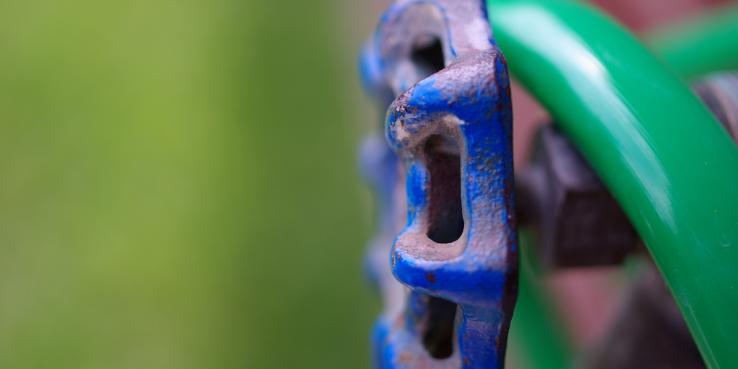The San Francisco Public Utilities Commission took two steps in support of urban agriculture at a recent meeting. The first step was making it easier for community gardeners and urban farmers to install new water hookups at their sites. Currently, the price of a new water meter installation is approximately $8,500. That high cost barrier has led many garden projects to source their water from a neighboring property rather than build their own connection with the water system, resulting in a losing situation for both gardeners and the PUC. For the gardeners, hooking into an existing water meter means they pay for water as if they were a water customer in a building. That rate includes the standard wastewater charge, even though water that irrigates a garden (and trickles into the soil) doesn’t add to the load on the wastewater and sewer system. For the PUC, any project piggy-backing on a neighbor’s water account makes it difficult to track the water usage of urban agriculture.
To solve the problem, the PUC approved a program to waive most or all of the cost of installing a dedicated landscape irrigation meter. Projects using these meters will not get charged for wastewater, reducing their overall water bill, while the PUC will gain a way to measure water usage.The commission set aside $100,000 for the program and will allow applicants to apply for a fee waiver of up to $10,000 for a new meter. The program could ultimately provide 10 free water hookups to qualified applicants that meet specific criteria. Applications will be considered on a first-come, first-serve basis.
While gaining access to a water meter can be difficult in San Francisco, accessing land is even more difficult. Citing the Mayor’s Executive Directive on Healthy and Sustainable Food from 2009, which encouraged city agencies to identify vacant land suitable for urban agriculture, the commission took a step toward addressing this challenge, as well. Specifically, it approved a feasibility study at two pilot sites: College Hill Reservoir and the Southeast Treatment Plant. The staff will present the results of its study before the end of January 2012.
The PUC has a unique amount of leeway when it comes to what kinds of projects it can consider at these sites. Unlike nearly all the land under the jurisdiction of the Recreation and Parks Department, the PUC’s sites are either not currently publicly accessible or not currently used as recreation areas. Establishing a garden or farm on this land could activate unused space, rather than replace an existing use. Commercial operations run by a non-profit or for-profit could fit well on PUC land, whereas they would be more controversial inside an existing park. At the same time, the PUC could ultimately decide that a traditional community garden fits best on both sites. Many types of urban agriculture could fit well on PUC land.
Many questions remain to be answered. One thing, however, is clear. The San Francisco Public Utilities Commission is demonstrating a strong commitment to urban agriculture that can serve as a model for other city agencies.
